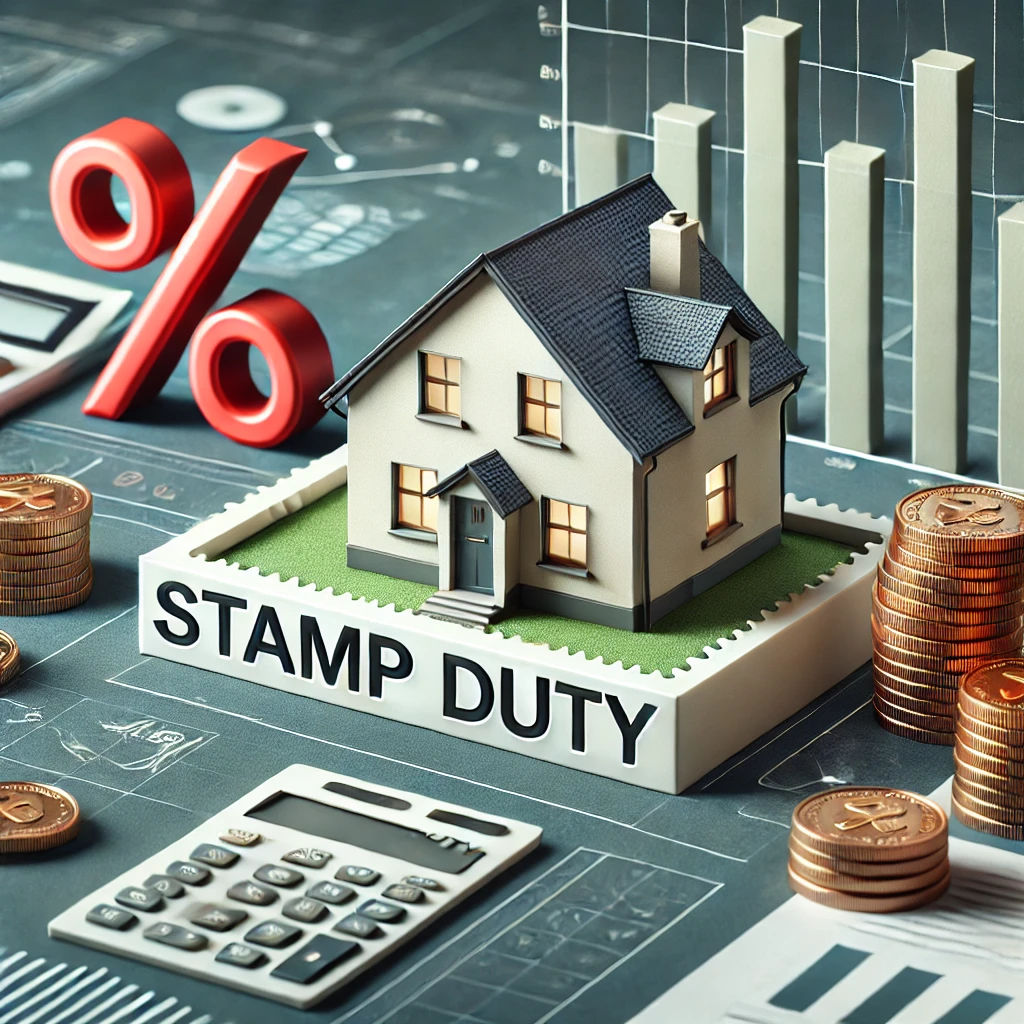Property Sector Responds to Stamp Duty Hike on Second Properties
Posted on Monday, 4 November, 2024

The residential property sector is grappling with the news of a 2% increase in Stamp Duty on buy-to-let properties, effective immediately. Chancellor Rachel Reeves announced this increase, raising the tax on investment properties from 3% to 5% in the recent Budget. This change is expected to heavily impact landlords, though it does not apply to properties that have already exchanged.
Immediate Reactions from Industry LeadersAngharad Truman, President of Propertymark, expressed disappointment, stating, “The imbalance between available private rental homes and tenant demand continues to grow. The government’s decision to increase Stamp Duty without addressing this core issue is yet another setback for landlords.”
Richard Donnell, Head of Research and Insight at Zoopla, noted, “Stamp Duty changes, combined with rising property prices, generated over £11.5 billion in the past year, with the tax burden heaviest in southern England, particularly in London and the South East. Second-home buyers are already adjusting to last year’s Budget, which allowed councils to double council tax on second properties.”
Emma Cox, MD of Real Estate at Shawbrook, emphasized, “While the government should focus on renters’ and buyers’ needs, landlords are again bearing the brunt of increased Stamp Duty. The Private Rental Sector (PRS) is crucial for housing supply, but deterring landlords only exacerbates the supply-demand imbalance.”
Dominic Agace, CEO of Winkworth, argued that Stamp Duty inhibits both home purchases and rental market growth, affecting social mobility. He warned of wealthy individuals moving abroad to avoid inheritance tax on foreign-earned money, potentially damaging London’s status as a global business hub.
Nick Leeming, Chairman of Jackson-Stops, pointed out, “The Budget missed an opportunity for Stamp Duty reform. Incentives for downsizing could free up family homes, easing the housing market for growing households.” However, he welcomed the decision to leave Capital Gains Tax (CGT) unchanged, as an increase could discourage landlords from expanding their portfolios, further squeezing rental supply.
Nick Sanderson, CEO of Audley Group, found the Budget’s limited attention to Stamp Duty disappointing. He criticized the absence of incentives for downsizers, which could have invigorated the housing market. He also highlighted the need for more detailed planning and development reforms to address housing shortages.
Verona Frankish, CEO of Yopa, expressed concerns about the lack of Stamp Duty relief extensions, predicting that many homebuyers may face higher taxes in the coming year. First-time buyers remain exempt within a £300,000 threshold, but existing homebuyers above £250,000 will feel the increased costs.
Marc von Grundherr, Director of Benham and Reeves, criticized the lack of extended Stamp Duty relief thresholds, which could increase costs for homebuyers. He noted that while this won’t deter buyers, it adds to the overall expense of homeownership.
Jonathan Samuels, CEO of Octane Capital, said the property market remains resilient, thanks to recent improvements in the mortgage sector. He noted that despite Budget uncertainty, lenders’ confidence in the market should stay stable, even with changes to National Insurance contributions.
Colby Short, CEO of GetAgent.co.uk, remarked that the Budget missed the opportunity to improve the home-buying process, expressing doubt over whether proposed housebuilding goals will be met, given Labour’s historical challenges in delivering on such ambitions.
Mark Harris, CEO of SPF Private Clients, observed that the Stamp Duty surcharge for landlords adds to entry costs for investors. While long-term investors may stay in the market, these added costs could deter new entrants.
David Alexander, CEO of DJ Alexander, criticized the freeze on Inheritance Tax (IHT) thresholds until 2030, calling it a financial strain on homeowners hoping to pass wealth to the next generation.
John Phillips, CEO of Spicerhaart and Just Mortgages, saw the Budget as a missed opportunity to support homebuyers. He stressed the need for measures to reduce affordability barriers, especially for first-time buyers, while warning of further rental supply issues due to the Stamp Duty increase on second homes.
Ben Thompson, Deputy CEO of the Mortgage Advice Bureau, noted that net-zero commitments remain a challenge for housing. He criticized the lack of incentives in the Budget to improve housing standards in line with climate goals.
Oli Sherlock, MD of Insurance at Goodlord, emphasized the urgent need for increased housebuilding, a core issue affecting the rental market. He hopes that government commitments will accelerate the construction process.
Guy Gittins, CEO of Foxtons, welcomed the decision not to increase CGT on residential properties, saying it may encourage landlords to stay in the market, particularly in high-demand areas like London. However, he cautioned that the added Stamp Duty on second homes could raise costs for those expanding their portfolios.
Ben Beadle, CEO of the NRLA, criticized the Stamp Duty increase, warning that it could reduce the availability of rental homes over the next decade, exacerbating tenant affordability issues.
Tim Bannister, Property Expert at Rightmove, predicted that the Stamp Duty increase would mean additional costs for landlords purchasing buy-to-let properties. He highlighted the critical need for rental properties and warned of rising costs for first-time buyers next spring without further relief.
Overall, the Budget’s Stamp Duty changes have elicited strong reactions from industry leaders, who worry about their potential impact on housing affordability, rental supply, and market stability. Many feel that the Budget missed key opportunities for housing reform and support amidst ongoing market pressures.







